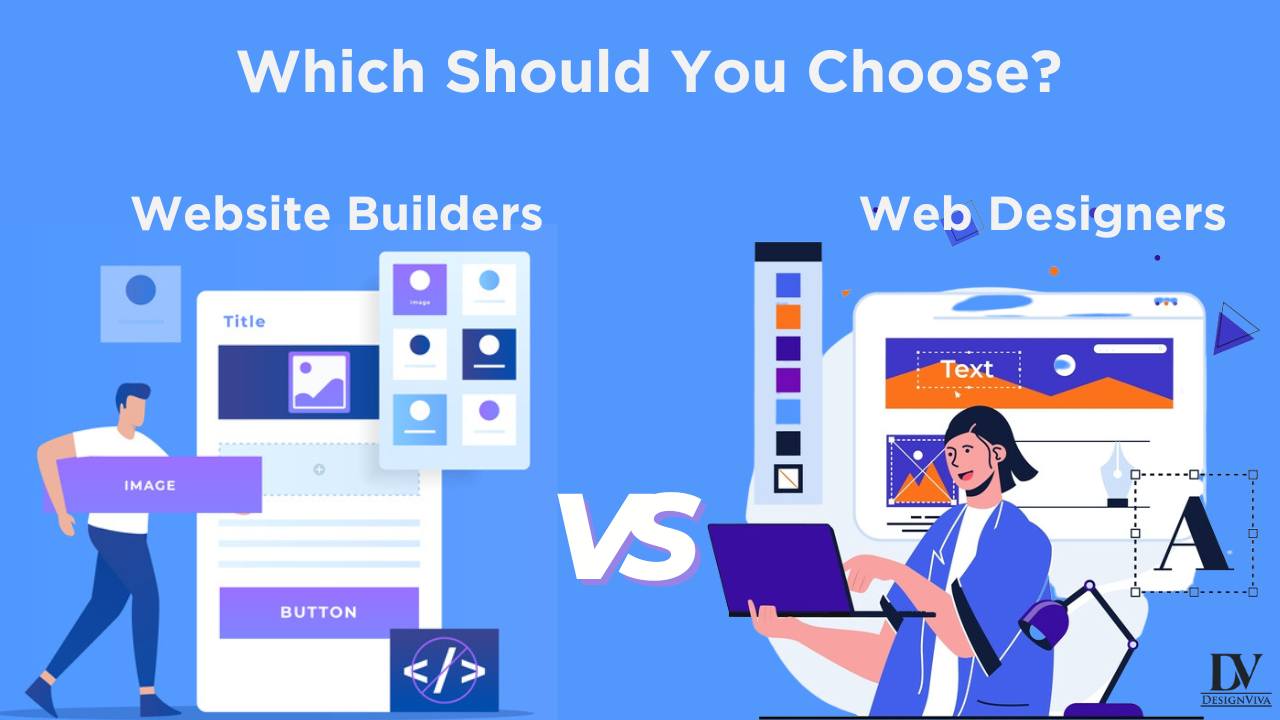A web designer can help you create a beautiful, functional website that will stand the test of time.
Web designers are responsible for creating websites that work in all browsers and devices, from desktops to tablets and smartphones. They also need to know how to create websites that are mobile-friendly—so they can be easily viewed on any device. And they need to know how to use HTML, CSS, Javascript, and other programming languages.
The best web designers will have experience with responsive design—the ability to make a website adaptable to various screen sizes and resolutions. They will also know what tools are out there (like PhoneGap) so they can build your app right inside your website.
A good web designer will have at least five years of experience as a full-time professional in the field. The best ones have been working as freelancers for at least five years before starting their own business.
A web designer can help you create a beautiful website that will stand the test of time, but a website builder can help you get started quickly.
Importance of a Web Designer
A web designer can create a beautiful and customized website tailored to your specific needs and branding. A web designer is a skilled professional who can create a beautiful and customized website that is specifically tailored to meet your unique needs and align with your branding. They have the expertise to design visually appealing layouts, select appropriate color schemes, incorporate custom graphics, and create a user-friendly interface. By understanding your business goals and target audience, a web designer can create a website that effectively communicates your message, enhances your brand image, and provides a seamless user experience. With their knowledge of design principles, industry trends, and usability, a web designer can bring your vision to life and create a website that stands out and leaves a lasting impression.
They have expertise in design principles, user experience, and implementing advanced functionalities. Web designers possess expertise in design principles, user experience (UX), and implementing advanced functionalities on websites. They are skilled in creating visually appealing and intuitive designs that engage and attract users. Design principles such as layout, typography, color theory, and visual hierarchy are applied to create aesthetically pleasing and functional websites. Additionally, web designers focus on optimizing the user experience by considering factors like ease of navigation, accessibility, and clear communication of information. They also have the knowledge and technical skills to implement advanced functionalities such as interactive elements, animations, responsive design, and integrations with other systems or APIs. With their expertise, web designers ensure that the websites they create are not only visually appealing but also user-friendly and optimized for optimal performance.
A professionally designed website can make a lasting impression, establish credibility, and enhance your brand image. A professionally designed website has the power to make a lasting impression on visitors, establish credibility, and enhance your brand image. Here's a brief explanation of each:
Lasting Impression: A well-designed website captivates visitors with its visual appeal and intuitive user experience. It creates a positive and memorable first impression, making visitors more likely to stay, explore, and engage with your content.
Credibility: A professionally designed website instills trust and credibility in your brand. It conveys a sense of professionalism and competence, indicating that you are a reputable business. Visitors are more likely to trust your products or services and perceive your brand as reliable and legitimate.
Brand Image Enhancement: A website reflects your brand identity and values. A professional design aligns with your brand's aesthetics, messaging, and target audience. It helps to establish a cohesive and consistent brand image across different online platforms, reinforcing your brand's identity and making it more memorable to visitors.
By investing in a professionally designed website, you can leave a positive and lasting impression on your visitors, build trust and credibility, and enhance your brand image, ultimately contributing to the success and growth of your business.
Benefits of a Website Builder
A website builder is a user-friendly tool that empowers individuals and businesses to create websites without the need for coding or design skills. Here's a short brief on its key features and benefits:
Ease of Use: Website builders are designed with simplicity in mind. They offer intuitive interfaces and drag-and-drop functionality, allowing users to easily add and arrange elements on their website. This makes it accessible to individuals without technical expertise.
No Coding Required: With a website builder, you don't need to write or understand code. It eliminates the need for learning programming languages such as HTML, CSS, or JavaScript. Instead, you can choose from pre-designed templates and customize them to suit your preferences.
Quick Setup: Website builders provide ready-made templates, which significantly reduce the time it takes to set up a website. You can select a template that suits your industry or style, and then customize it with your content, images, and branding elements.
Cost-Effective: Website builders are generally more affordable compared to hiring a web designer or developer. They often offer flexible pricing plans, including free options, allowing you to create a website within your budget.
Template Variety: Website builders offer a wide range of professionally designed templates to choose from. These templates are created with modern design trends and responsiveness in mind, ensuring that your website looks good on different devices.
Built-in Features and Functionality: Website builders come with built-in features and functionalities, such as contact forms, image galleries, blog modules, and e-commerce capabilities. These tools make it easier to add essential elements to your website without the need for additional plugins or coding.
In summary, website builders provide a user-friendly and cost-effective solution for creating websites without coding or design skills. They enable individuals and businesses to quickly set up professional-looking websites with customizable templates and built-in features.
Considerations for Choosing
When choosing between a website builder and a web designer, there are several considerations to keep in mind. Here are a few key factors to consider:
Design Customization: If you have specific design requirements or want a unique and customized website, working with a web designer is a better choice. Web designers can create a tailored design that reflects your brand identity and aligns with your specific needs.
Budget: Consider your budget for website development. When compared with hiring a professional web designer, website builders are less costly and easier to set up. Website builders often offer free plans or affordable subscription options, while web designers typically involve higher upfront costs.
Technical Expertise: Evaluate your technical skills and comfort level with technology. Website builders are designed for individuals without coding or design skills, offering user-friendly interfaces and pre-built templates. However, if you require advanced functionalities or have specific technical requirements, a web designer's expertise may be necessary.
Time and Speed: Consider your timeline and urgency to get your website up and running. Website builders offer quick setup and easy customization options, allowing you to launch your site faster. On the other hand, working with a web designer may involve a longer development process due to consultation, design revisions, and coding.
Ongoing Maintenance: Think about the ongoing maintenance and updates required for your website. Website builders often handle technical maintenance and security updates for you. With a web designer, you may need to manage ongoing maintenance or arrange for maintenance services separately.
Future Scalability: Consider your long-term goals and the potential scalability of your website. If you anticipate significant growth or the need for complex functionalities in the future, working with a web designer might provide better flexibility and scalability options.
It's important to weigh these considerations based on your specific requirements, resources, and priorities. Some businesses choose to start with a website builder for initial setup and then transition to a web designer as their needs evolve. Others opt for a web designer right from the beginning for a fully customized and tailored solution. Ultimately, the choice depends on your unique circumstances and what aligns best with your goals and constraints.
Combining the Two
Combining the use of a website builder and a web designer can be a smart approach to creating a website that meets your needs efficiently. Here's how you can leverage the strengths of both:
Quick Start with a Website Builder: Start by using a website builder to quickly set up your website. Choose a template that aligns with your industry or style, and utilize the user-friendly interface to customize the design, add content, and configure basic functionalities. This allows you to have a functional website up and running in a shorter time frame.
Collaboration with a Web Designer: Once your website is live, collaborate with a web designer to enhance its design and functionality. A web designer can refine the template, customize specific elements, and add advanced features that may not be available in the website builder. They can help you achieve a more unique and tailored design that aligns closely with your branding and specific requirements.
Advanced Functionality and Customization: Work with the web designer to implement advanced functionalities that go beyond the capabilities of the website builder. This may include custom coding, integration with third-party systems, e-commerce enhancements, or interactive elements that require specialized expertise.
Design and Branding Consistency: The web designer can ensure that the overall design of your website remains consistent with your branding elements, including fonts, colors, imagery, and visual style. They can create a cohesive and polished look that strengthens your brand image and enhances user experience.
Ongoing Support and Maintenance: Collaborating with a web designer allows you to have ongoing support and maintenance services for your website. They can provide updates, address technical issues, and make necessary adjustments to keep your site running smoothly.
By combining the convenience and speed of a website builder with the expertise of a web designer, you can have an initial functional website quickly while still achieving a customized and professional result. This approach allows you to balance time, budget, and customization requirements effectively.
Remember, the choice between a web designer and a website builder ultimately depends on your specific needs, budget, and timeline. Evaluating these factors will help you make an informed decision that aligns with your goals and resources.
Conclusion
Starting with a website builder allows for a quick initial setup while collaborating with a web designer later enables customization, advanced functionality implementation, and design refinement. This hybrid approach can provide a cost-effective and tailored solution that meets your unique requirements.
Ultimately, the decision depends on factors such as your budget, technical skills, timeline, desired level of customization, and long-term goals. Assessing these considerations will help you determine whether a website builder, a web designer, or a combination of both is the best choice for your website development journey.
If you're looking to create a website, choose a web designer over a website builder.





